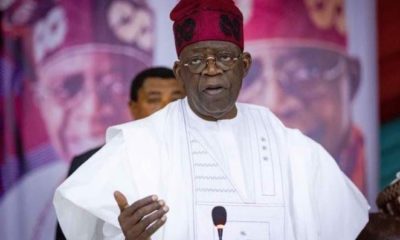Oil
Oil price slump: Nigeria slashes 2015 budget by half

ABUJA — THE Federal Government has more than halved capital expenditure to less than 10 per cent of the 2015 budget spending, axing badly needed infrastructure investment due to the collapse in the price of oil, the country’s main source of revenue, according to the full budget submitted to the national Assembly.
Even though government’s capital spending seldom materialises as planned, shelving projects such as port upgrades and roads will only perpetuate the inefficiencies that have plagued Africa’s most populous nation and biggest economy for decades.
The document, seen by Reuters, puts capital expenditure at N387 billion ($2 billion), or 8.9 per cent of total spending of N4.357 trillion.
This is a significant drop from the 2014 spending plans when capex, or capital expenditure, accounted for 23.7 per cent of projected government outlays.
It is also only just over half the N634 billion that Finance Minister, Dr Ngozi Okonjo-Iweala, in her December budget presentation, said would go on capital expenditure and related items.
Director General, Budget Office, Bright Okogwu, said the reductions were the direct result of the halving in the last six months of the price of crude, which normally accounts for 80 per cent of the cash flowing in to state coffers.
“The capex was severely affected by the huge reduction in revenue,” Okogu told Reuters, adding that it was easier to wield the axe on infrastructure projects than Nigeria’s notoriously bloated bureaucracy.
He said wages were difficult to cut and “you cannot reduce staff numbers overnight.”
Despite the overall capital expenditure reduction, spending on military equipment was set to rise slightly, reflecting the need for weapons to counter Boko Haram Islamist militants in the northeast.
The National Assembly is expected to start discussing the budget later this month and it is likely to be passed some time in March, regardless of who wins the presidential election on February 14, though supplements could be added. One such could be for military equipment if Nigeria secures a loan of up to $1 billion, which President Goodluck Jonathan requested last year.
The oil-price slump
The oil-price slump has hammered Nigeria, whose currency has hit a series of record lows against the dollar in the last three months despite the central bank burning through 20 percent of its reserves to prop it up.
The government’s benchmark oil price for this year’s budget is $65 a barrel, a figure the finance ministry says will not be changed despite crude falling as low as $45 a barrel in January.
As well as knocking this year’s overall growth forecast, the impact is being felt in the construction sector, where sources say infrastructure projects that were already moving at a snail’s pace have been put on ice for this year.
Construction firms have halted work on roads, railways and bridges, firing up to a third of workers and maintaining only skeleton crews.
Oil
NNPC Targets 60% Methane Emission Reduction By 2031
The Nigerian National Petroleum Company Limited (NNPC) has unveiled a bold strategy to reduce methane emissions in the oil and gas sector by 60% by 2031, with an ultimate goal of achieving net-zero emissions by 2060.
This announcement reinforces Nigeria’s leadership role under the Global Methane Pledge initiative and its commitment to tackling climate change.
The Group Chief Executive Officer of NNPC, Mele Kyari, disclosed these plans during a meeting on Thursday with Robert Leahman, the U.S. State Department’s Global Methane Program Manager, and a delegation from Deloitte.
READ MORE: Atiku Gloats Over AUN’s Achievements Ahead Of 20th Anniversary
The discussions, held at the NNPC Towers in Abuja, focused on collaborative efforts to reduce methane emissions through innovative and sustainable practices.
“Reducing methane emissions is not just an environmental necessity but also a strategic imperative for Nigeria’s energy transition. We are leveraging partnerships to adopt global best practices and innovative solutions,” Kyari stated.
Key among these efforts is a pilot project in the Niger Delta, aimed at establishing emissions baselines, mitigating methane leaks, and promoting sustainable operations across Nigeria’s energy sector.
The project, a partnership between NNPC, Deloitte, and the U.S. Bureau of Energy Resources, will utilize data-driven methodologies to pinpoint and address methane hotspots.
Robert Leahman commended Nigeria’s proactive stance, describing it as a benchmark for other nations on the continent.
“Nigeria’s leadership under the Global Methane Pledge sets a standard for the continent. These initiatives will not only help reduce emissions but also drive sustainable development in the energy sector,” he said.
Kyari highlighted the broader benefits of addressing methane emissions, noting its significance for both environmental protection and economic efficiency.
“This collaboration is a game-changer. By addressing methane leaks, we’re reducing waste, saving costs, and protecting the environment. It’s a win-win for our economy and the planet,” he added.
Oil
FG Introduces New Incentives To Revitalize Nigeria’s Oil & Gas Industry
In a strategic move to revitalize Nigeria’s oil and gas sector, the Federal Government has unveiled two key fiscal incentives aimed at attracting investment and enhancing energy security.
The announcement was made by Mr. Wale Edun, the Minister of Finance and Coordinating Minister of the Economy on Wednesday.
The first initiative, the Value Added Tax (VAT) Modification Order 2024, introduces critical exemptions for essential energy products and infrastructure, including Diesel, Feed Gas, Liquefied Petroleum Gas (LPG), Compressed Natural Gas (CNG), Electric Vehicles, Liquefied Natural Gas (LNG) infrastructure, and Clean Cooking Equipment.
Read Also: Atiku Calls For Rotational Presidency Across Nigeria’s Geopolitical Zones
These exemptions are designed to reduce living costs for Nigerians, promote energy security, and accelerate the transition to cleaner energy alternatives.
The second initiative, the Notice of Tax Incentives for Deep Offshore Oil & Gas Production, offers new tax relief options for deep offshore exploration projects.
This measure aims to position Nigeria’s deep offshore basin as a premier destination for international oil and gas investments, boosting the country’s appeal to foreign investors.
These reforms are part of a broader set of policy initiatives, known as Policy Directives 40-42, endorsed by President Bola Ahmed Tinubu.
The directives reflect the administration’s commitment to fostering sustainable development in the energy sector and enhancing Nigeria’s competitive edge in the global oil and gas market.
Business
Tinubu set to approve ExxonMobil-Seplat oil deal, expands CNG bus initiative

By Yemie Adeoye
NIGERIA’s President Bola Tinubu has announced that the protracted ExxonMobil-Seplat upstream oil divestment will be formally approved by the Minister of petroleum within a matter of days, just as he announced his government’s intention to expand the Compress natural Gas, CNG buses initiative.
The President who stated this during his Independence day nationwide broadcast stated that the move is in line with his administration’s commitment to free enterprise, free entry and free exit in investments which is the hallmark of his administration investment policy.
“Fellow compatriots, our administration is committed to free enterprise, free entry, and free exit in investments while maintaining the sanctity and efficacy of our regulatory processes. This principle guides the divestment transactions in our upstream petroleum sector, where we are committed to changing the fortune positively. As such, the ExxonMobil Seplat divestment will receive ministerial approval in a matter of days, having been concluded by the regulator, NUPRC, in line with the Petroleum Industry Act, PIA. This was done in the same manner as other qualified divestments approved in the sector.”
The President also seized the opportunity to plead with Nigerians to be patient with his administration’s reform policies. “As your President, I assure you that we are committed to finding sustainable solutions to alleviate the suffering of our citizens. Once again, I plead for your patience as the reforms we are implementing show positive signs, and we are beginning to see light at the end of the tunnel”.
“Our energy transition programme is on course. We are expanding the adoption of the Presidential Initiative on Compressed Natural Gas for mass transit with private sector players. The Federal Government is ready to assist the thirty-six States and FCT in acquiring CNG buses for cheaper public transportation.
Fellow Nigerians, while we are working to stabilise the economy and secure the country, we also seek to foster national unity and build social harmony and cohesion. Our economy can only thrive when there is peace”. he enthused.























